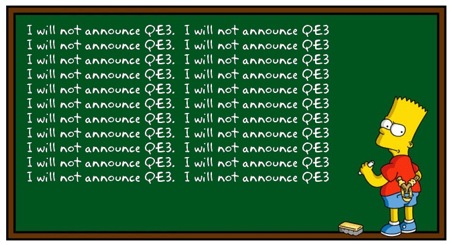My fellow
SLOB, W.C. Varones, has
posted tea party recommendations for this June's ballot. Since there is no official tea party position, and
everyone can claim a leadership role in the tea party, I am following suit. I am a resident of the city of San Diego, so I am not covering propositions in El Cajon, Oceanside or other areas. On to the props - I am using my own shortened and more accurate versions of the titles. Don't like my characterizations? Tough, get your own blog; free speech rocks.
Statewide PropositionsProposition 28 - The Faux Term Limits Initiative - NOThis measure reduces the total time a legislator can serve in office (Assembly or Senate) to 12 years, down from 14 years. More term limits, hooray? Wrong. Right now, members of the Assembly are limited to 6 years in office; if they want to stay in Sacramento they have to run for the State Senate. Under this proposal, an Assemblyman will go from being limited to three terms to being limited to six terms, because the new language doesn't specify which house the term limits apply to, unlike now. Under the current system State Senators are limited to two four year terms, if Prop 28 passes they will go to three. This will actually increase the time that legislators remain ensconced in uncompetitive districts. Vote NO.
Proposition 29 - Cigarette Tax Dollars for Special Interests - NOFrom the
LOWV website:
This measure increases--effective October 2012--the existing state excise tax on cigarettes by $1 per pack. The total state excise tax, therefore, would be $1.87 per pack.
So the tax is set to increase by 115%. We also know that increasing tobacco taxes never generates the revenue projected. Where would the money go? Well to fund the California Cancer Research Life Sciences Innovation Trust Fund silly. Who could be against that? Well, it turns out that this will be a slush fund, where research dollars are directed by unelected officials, appointed by politicians who can pay back their supporters. From
Ballotpedia.org, the members of the committee to funnel research money to close pals of the medical and political establishment are:
- 3 University of California chancellors (Berkeley, San Francisco and Santa Cruz)
- 3 "selected from among Cancer Center Directors of National Cancer Institute designated cancer centers located within the State of California" (appointed by the Governor of California)
- 1 "affiliated with a California Academic Medical Center who is a practicing physician with expertise in the prevention, treatment or research of cardiovascular disease" (appointed by the Governor of California)
- 2 "selected from among California representatives of California or national disease advocacy groups whose focus is tobacco-related illness, at least one of whom shall be a person who has been treated for a tobacco related illness." (appointed by Director of California Department of Public Health)
- A Committee to establish a peer review process for selection of grants modeled on the process used by the National Institutes of Health.
Tobacco tax dollars couldn't be in better hands, given all the politicians involved. Is the state of California going to get into the cancer research funding business, given all our other problems? Further, this is an example of ballot box budgeting. I will stipulate that the Democrat controlled legislature has not done their job for decades; but we are getting to the point where angels themselves couldn't straighten out our state budget, given the complexities of initiatives directing spending. Vote NO.
San Diego Ballot MeasuresProposition A - Project Labor Agreements Can Not be Mandatory -
YesThis explanation from the
LOWV site is simple.
The ballot measure states that except as required by State or federal contracting or procurement obligation, or as a condition of the receipt of State or federal funds, the City shall not require a contractor on a construction project to participate in a Project Labor Agreement (PLA) as a contract condition.
It prevents the city from imposing a PLA condition in order to win a contract. Why this is controversial is beyond me. The bidding contractors for city work should be able to bid based on their knowledge of their own costs, without having to worry that the city will side with unions and impose additional costs on projects. Richard Rider has signed on to the ballot argument for the proposition, always a big endorsement in my view. Vote YES.
Proposition B - San Diego Employee Pension Reform - YesThere has been a huge discussion of the details of this proposition, so I only want to make a few simple points of my own. First, even the proposition's opponents concede it will save the city and therefore the taxpayers, money. Their claim is that the savings don't come from the change to a defined contribution system. So what? This is a package deal that saves money.
Second, is a philosophical matter. Who should be responsible for the management of pensions, the employee or employer. I think our experience over the last two decades has answered the question. The employees must be in charge of their own retirement planning, because neither unions, nor businesses, nor government can be counted upon to keep their best interests first and foremost. This is how we got into this mess, unions cut deals with politicians that couldn't be kept and we ended up with a disaster. Defined benefits require pay as you go accounting, which makes the costs of pensions more transparent.
Finally, there is the question of risk. Defined benefit pensions puts the risk for future benefits on the taxpayers. If the market tanks, or politicians are corrupt or some catastrophe strikes, it puts the taxpayers at risk. I don't want the risk, I have enough of my own. Why should taxpayers, who are mostly relying on 401(k)s for their own retirement, and shouldering their own retirement risk, also should the retirement risk of employees? They shouldn't.
Vote YES.






















